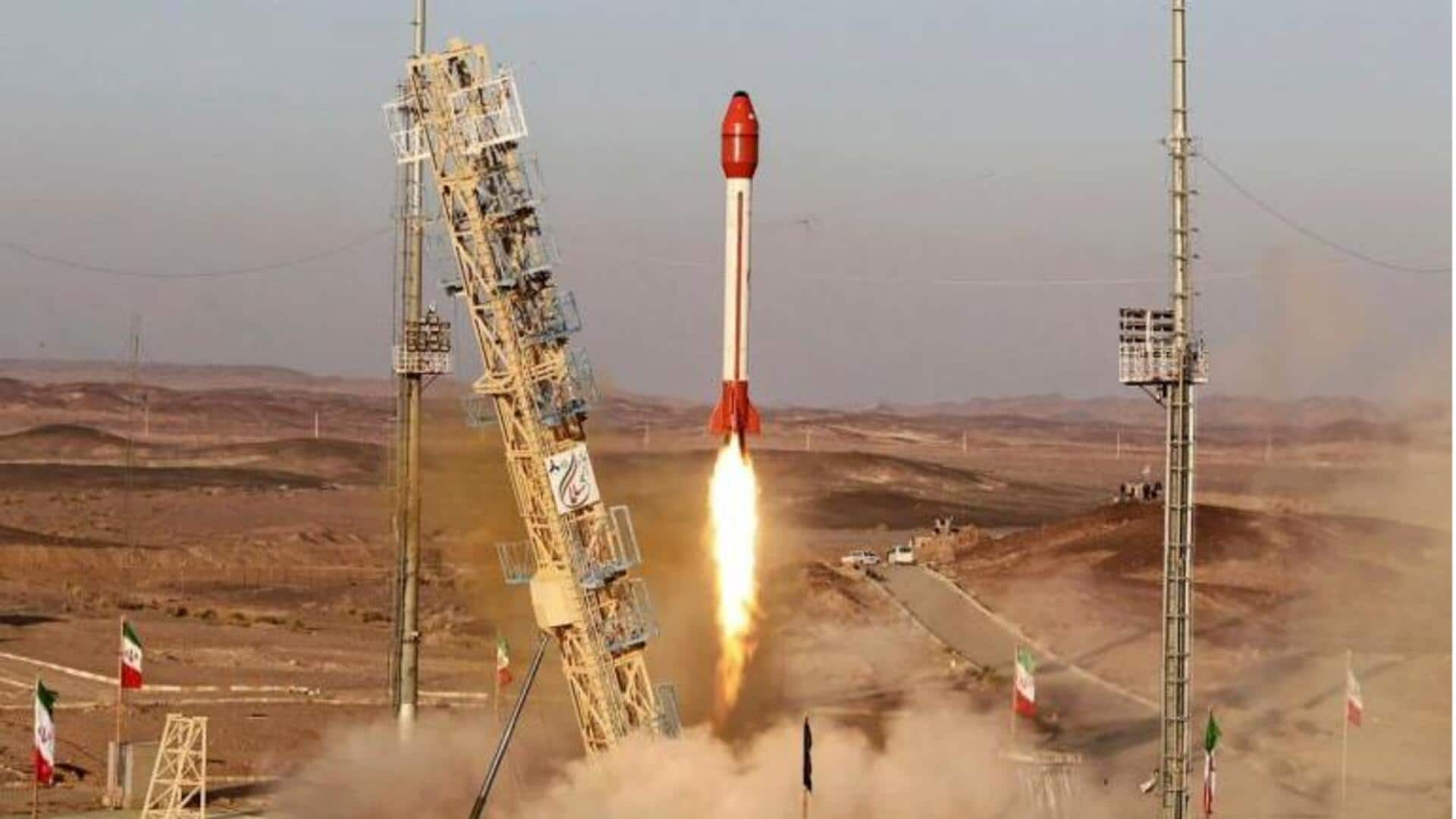
Iran successfully sends a satellite to space
What's the story
Iran has successfully launched a satellite into space via a rocket developed by its paramilitary Revolutionary Guard, according to state-run media reports. This marks the second successful deployment of a satellite into orbit with this rocket. The launch comes at a time of increased tensions in the Middle East, due to the ongoing conflict between Israel and Hamas in Gaza Strip.
Western worries
Launch raises concerns over ballistic missile program
The West has expressed concerns that Iran's satellite launches could potentially aid in the advancement of its ballistic missile program. These fears are fueled by recent events, including an unprecedented direct missile-and-drone attack on Israel by Tehran and Iran's ongoing uranium enrichment to nearly weapons-grade levels. The latter has raised alarms among nonproliferation experts about the intentions behind Tehran's program.
Launch specifics
Details of Iran's satellite and rocket
The rocket used in the recent launch was identified as the Qaem-100, which had previously been used by the Guard for a successful launch in January. The solid-fuel rocket deployed the Chamran-1 satellite, weighing 60kg, into a 550km orbit. The primary mission of this satellite is to test space hardware and software, with land stations already receiving signals from it as per IRNA news agency reports.
International response
US stance on Iran's satellite launches
The US has previously stated that Iran's satellite launches violate a UN Security Council resolution, urging Tehran to refrain from any activities involving ballistic missiles capable of carrying nuclear weapons. However, UN sanctions related to Iran's ballistic missile program expired last October. The US State Department and American military have not yet commented on the recent Iranian launch.
Future prospects
Space program under new leadership
Under the leadership of former President Hassan Rouhani, Iran had slowed down its space program to avoid escalating tensions with the West. However, his successor Ebrahim Raisi, who died in a helicopter crash in May, had accelerated the program. The current president Masoud Pezeshkian has not yet disclosed his plans for the space program. This launch is the second one this year and first under his administration.